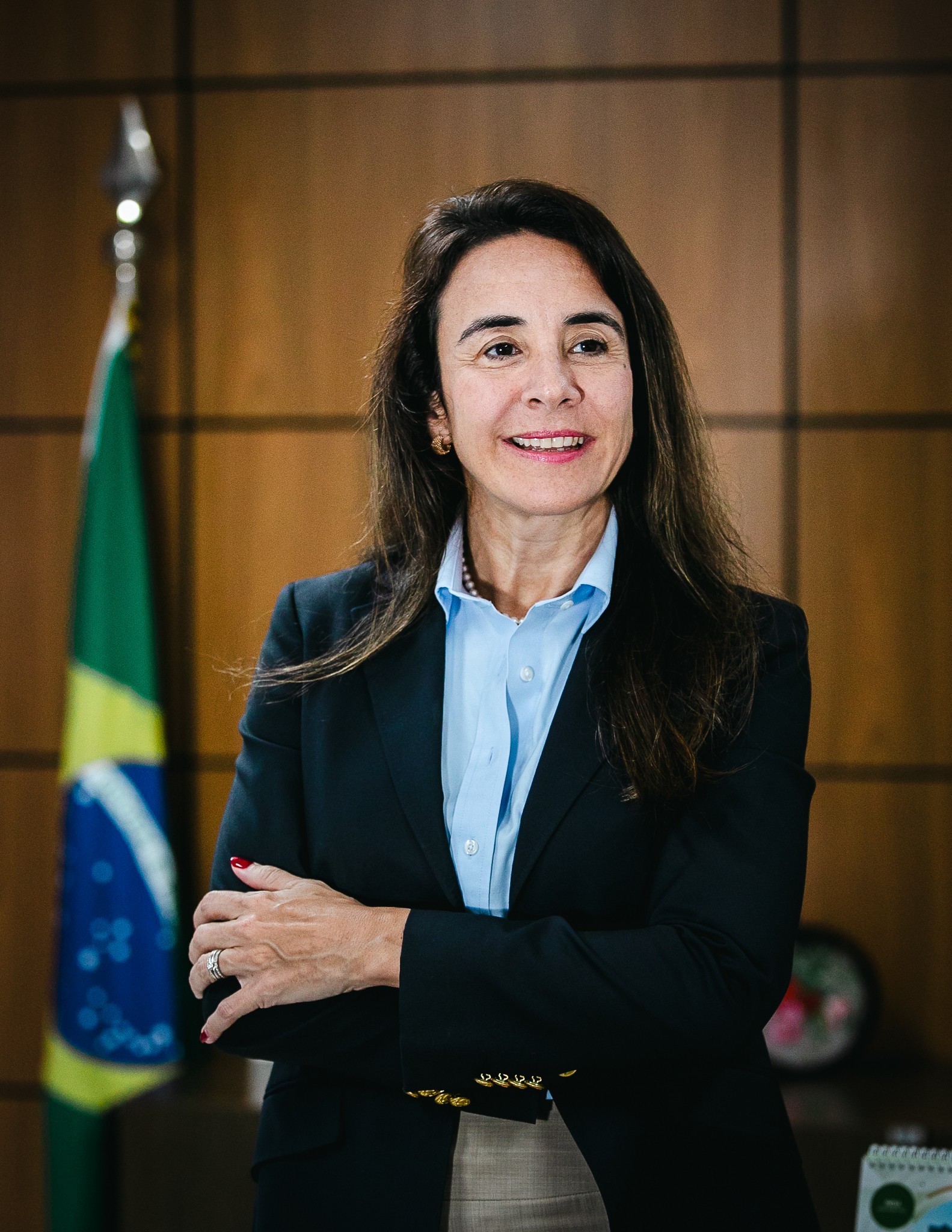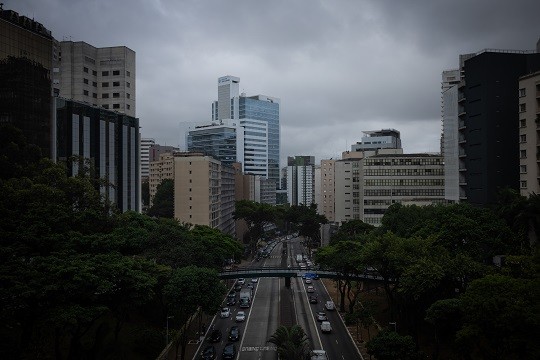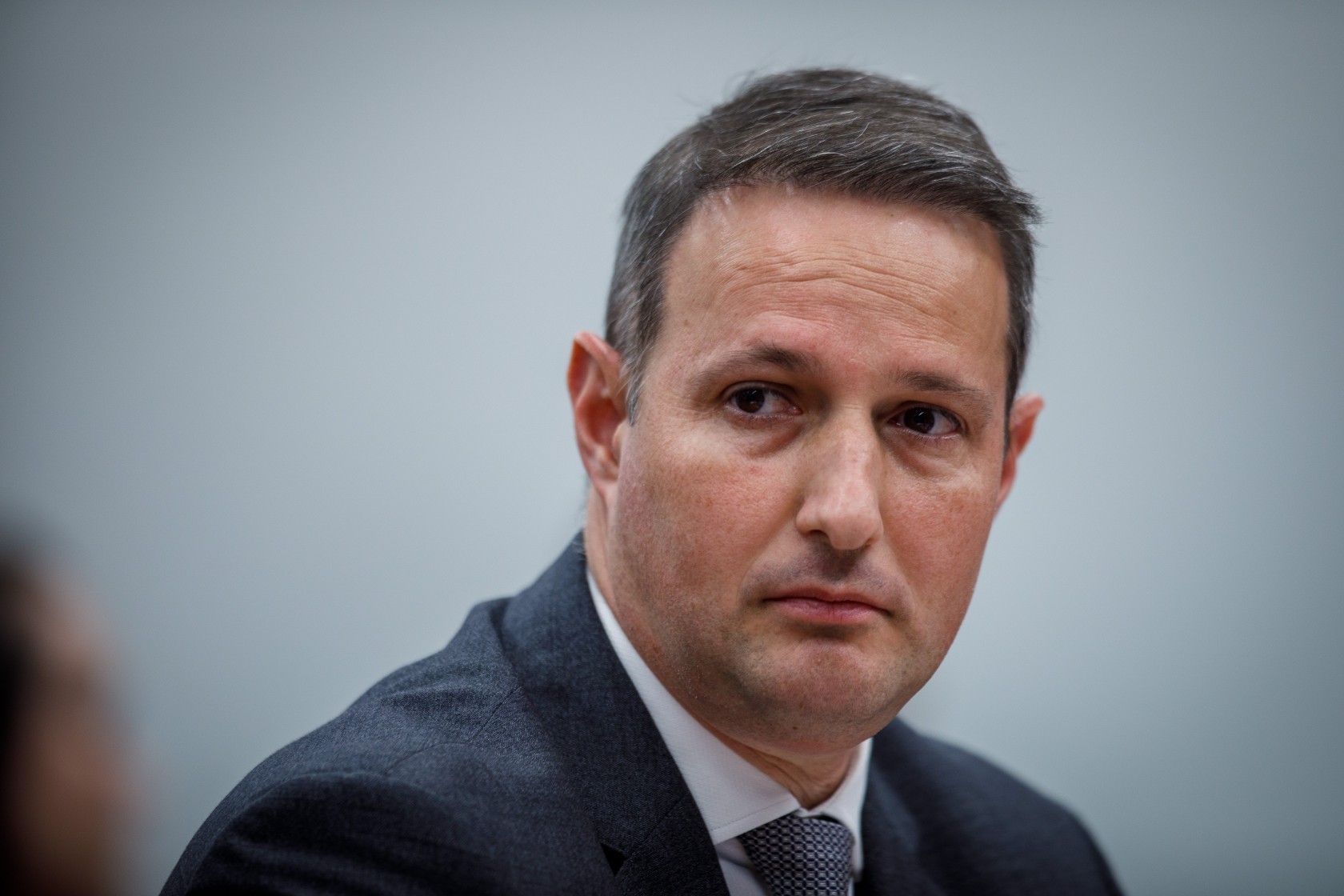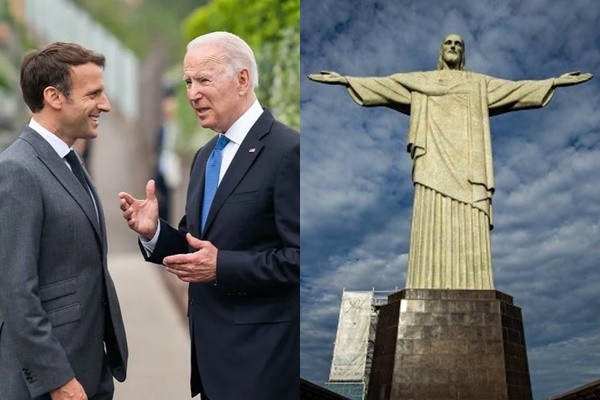'Consensus at G20 would reshape future with Trump', says finance track coordinator Tatiana Rosito
Brazil's secretary for International Affairs at the Ministry of Finance emphasizes inequality and super-rich taxation at G20 Tatiana Rosito, Brazil's secretary for International Affairs at the Ministry of Finance, told GLOBO that a strong and consensual declaration from the G20 could aid countries in dealing with Donald Trump’s return to power, given his criticism of multilateralism and environmental commitments. “Even if it reflects the current situation, it helps because if most countries are convinced, we have a different playing field for the future,” she said. “It’s important to note that the system has been through this before, and the Paris Agreement remains intact,” she added. Rosito acknowledged that the possibility of Argentina retracting from established agreements, complicating consensus efforts, has caught the attention of Brazilian diplomacy. “It’s not impossible, especially given their current stance at COP29 to seek dissociation,” she stated. G20 in Rio: See how traffic and commerce will be during the mega-holiday in the capital Fun in Rio: 20 paired activities for the G20 holiday weekend in Rio de Janeiro As the coordinator of the G20 finance track, Rosito highlighted Brazil's success in placing inequality at the center of the discussion. She is optimistic about including super-rich taxation in the final declaration, a Brazilian proposal approved by G20 ministers, and does not see the absence of a specific tax rate for billionaires in the final document as a setback. “What we agreed upon at the ministerial level is a baseline,” she explained in the interview below. Despite many approved documents, we now face the sensitive task of selecting content for the final declaration. What are the key issues? Overall, we are comfortable. All points have been agreed upon at the ministerial level and by central bank presidents, including the taxation of ultra-high-income individuals—an area in which we initially faced skepticism. President Lula instructed us to make inequality central to the international economic agenda. Super-rich taxation symbolizes this effort. The data is alarming: 10% of people hold 75% of the wealth, while 50% hold just 2%. We included it in the agenda knowing it’s complex and that taxation is inherently a matter of national sovereignty. Brazil hasn’t secured a minimum tax rate or global system for taxing the super-rich. Is there a risk this topic will be omitted from the final declaration or mentioned only briefly? This topic will be in the final declaration. We didn’t expect to have a ready-made proposal. It's natural that we need to continue working on it. Implementation is part of the process. What we agreed upon at the ministerial level is a baseline. We now await the declarations. Meanwhile, there have been changes in government. Some don’t impact us now, but we will wait and see. Through the finance track, we brought the situation to a comfortable point for leaders, achieving consensus. Will it be mentioned in the final declaration? I wouldn’t expect it, but let’s see. What will be difficult to negotiate? We are working toward a concise declaration. It won’t be like the one from New Delhi. We will have results in a document that is part of the declaration but separate. Besides progressive taxation, we’ll address multilateral bank reform and climate financing, another area with significant outcomes. The Brazilian proposal to exchange debt for investment in Africa didn’t gain traction. There’s also been no progress on resolving high debt in developing countries. Regarding debt swaps, we began last December facing significant resistance. Although a global initiative wasn’t approved, the topic is on the agenda and will continue. There’s consensus that it can be used. It’s not a silver bullet. We didn’t intend to present it as the solution, but it’s an important tool for easing fiscal pressure on some countries. Regarding the implementation of multilateral bank reform, we’ll have South Africa presiding over the G20, followed by the United States in 2025 under Donald Trump. What are the risks? The G20 operates by consensus. It also serves as a platform for dialogue and achieving what’s possible. Dissonant voices may slow implementation, but the system is much broader. We must see how the president-elect (Donald Trump) responds. The system has endured this before, and the Paris Agreement remains intact. Much of the world is committed to the energy transition, which must be considered. This wasn’t exactly the scenario in 2016 when Trump was first elected. Given the expected shift in perspective by the world’s largest economy, could the G20 declaration act as a sort of vaccine against Trump? Calling it a vaccine would be strong, but even a consensus in this direction helps. Even if it reflects the current moment, it helps because if most countries are convinced, we have a different playing field for the future. Of course, we must always strive for consensus. Today, it’s hard


Brazil's secretary for International Affairs at the Ministry of Finance emphasizes inequality and super-rich taxation at G20 Tatiana Rosito, Brazil's secretary for International Affairs at the Ministry of Finance, told GLOBO that a strong and consensual declaration from the G20 could aid countries in dealing with Donald Trump’s return to power, given his criticism of multilateralism and environmental commitments. “Even if it reflects the current situation, it helps because if most countries are convinced, we have a different playing field for the future,” she said. “It’s important to note that the system has been through this before, and the Paris Agreement remains intact,” she added. Rosito acknowledged that the possibility of Argentina retracting from established agreements, complicating consensus efforts, has caught the attention of Brazilian diplomacy. “It’s not impossible, especially given their current stance at COP29 to seek dissociation,” she stated. G20 in Rio: See how traffic and commerce will be during the mega-holiday in the capital Fun in Rio: 20 paired activities for the G20 holiday weekend in Rio de Janeiro As the coordinator of the G20 finance track, Rosito highlighted Brazil's success in placing inequality at the center of the discussion. She is optimistic about including super-rich taxation in the final declaration, a Brazilian proposal approved by G20 ministers, and does not see the absence of a specific tax rate for billionaires in the final document as a setback. “What we agreed upon at the ministerial level is a baseline,” she explained in the interview below. Despite many approved documents, we now face the sensitive task of selecting content for the final declaration. What are the key issues? Overall, we are comfortable. All points have been agreed upon at the ministerial level and by central bank presidents, including the taxation of ultra-high-income individuals—an area in which we initially faced skepticism. President Lula instructed us to make inequality central to the international economic agenda. Super-rich taxation symbolizes this effort. The data is alarming: 10% of people hold 75% of the wealth, while 50% hold just 2%. We included it in the agenda knowing it’s complex and that taxation is inherently a matter of national sovereignty. Brazil hasn’t secured a minimum tax rate or global system for taxing the super-rich. Is there a risk this topic will be omitted from the final declaration or mentioned only briefly? This topic will be in the final declaration. We didn’t expect to have a ready-made proposal. It's natural that we need to continue working on it. Implementation is part of the process. What we agreed upon at the ministerial level is a baseline. We now await the declarations. Meanwhile, there have been changes in government. Some don’t impact us now, but we will wait and see. Through the finance track, we brought the situation to a comfortable point for leaders, achieving consensus. Will it be mentioned in the final declaration? I wouldn’t expect it, but let’s see. What will be difficult to negotiate? We are working toward a concise declaration. It won’t be like the one from New Delhi. We will have results in a document that is part of the declaration but separate. Besides progressive taxation, we’ll address multilateral bank reform and climate financing, another area with significant outcomes. The Brazilian proposal to exchange debt for investment in Africa didn’t gain traction. There’s also been no progress on resolving high debt in developing countries. Regarding debt swaps, we began last December facing significant resistance. Although a global initiative wasn’t approved, the topic is on the agenda and will continue. There’s consensus that it can be used. It’s not a silver bullet. We didn’t intend to present it as the solution, but it’s an important tool for easing fiscal pressure on some countries. Regarding the implementation of multilateral bank reform, we’ll have South Africa presiding over the G20, followed by the United States in 2025 under Donald Trump. What are the risks? The G20 operates by consensus. It also serves as a platform for dialogue and achieving what’s possible. Dissonant voices may slow implementation, but the system is much broader. We must see how the president-elect (Donald Trump) responds. The system has endured this before, and the Paris Agreement remains intact. Much of the world is committed to the energy transition, which must be considered. This wasn’t exactly the scenario in 2016 when Trump was first elected. Given the expected shift in perspective by the world’s largest economy, could the G20 declaration act as a sort of vaccine against Trump? Calling it a vaccine would be strong, but even a consensus in this direction helps. Even if it reflects the current moment, it helps because if most countries are convinced, we have a different playing field for the future. Of course, we must always strive for consensus. Today, it’s hard to predict. In the past, President Trump participated in the G20. I don’t believe the U.S. will suddenly lose interest in stronger coordination or cooperation in areas like critical minerals or renewables. Before Trump, we have Argentina under Javier Milei. The Argentines left COP29 in Baku and reiterated difficulties with concepts like the 2030 Agenda and the Pact for the Future in the Sherpa meetings. Are you working with the possibility of Argentina not endorsing the final document? Not yet. But is it possible? Yes, it is. We don’t yet know the extent of this understanding. We will work toward consensus. It’s not impossible, especially with their current stance at COP29 to seek dissociation. We must wait to see how they position themselves here. What would be the impact if Argentina takes this isolated stance? It’s hard to speculate. The impact would be Argentina’s dissociation. Consensus was reached among ministers and central bank presidents. What does it mean if there isn’t consensus among presidents? It suggests a broader political stance, a reevaluation of positions? Like the president-elect Donald Trump, President Milei has also shifted some positions and is planning a visit to China. About the promise of a protectionist U.S. under Donald Trump, should Brazil adopt a more pragmatic stance to expedite negotiations? We are negotiating a Mercosur and European Union agreement and are on the verge of a state visit from the Chinese president (Xi Jinping). Brazil will assume significant roles in 2025, presiding over BRICS and COP30. A successful, strong consensus declaration from the G20 is crucial for our future efforts. For the first time in decades, Brazil has comparative advantages: in the energy transition and ecological transformation, which are substantial internationally. This was somewhat the case in the early 2000s with the commodities boom, which was vital for Brazil. Exports allowed us to accumulate reserves, a significant buffer. Brazil has the cleanest energy matrix in the G20. Many countries will take decades to reach this point. With the Ecological Transformation Plan, regulatory changes, climate investment platforms, tax reform, and fiscal adjustments, we are strengthening ourselves to face an uncertain world in which, fortunately, Brazil has real comparative advantages. The translation of this text into english was carried out by Project Irineu, O GLOBO's initiative to develop artificial intelligence tools. Here is the link to the original report.
Qual é a sua reação?

































